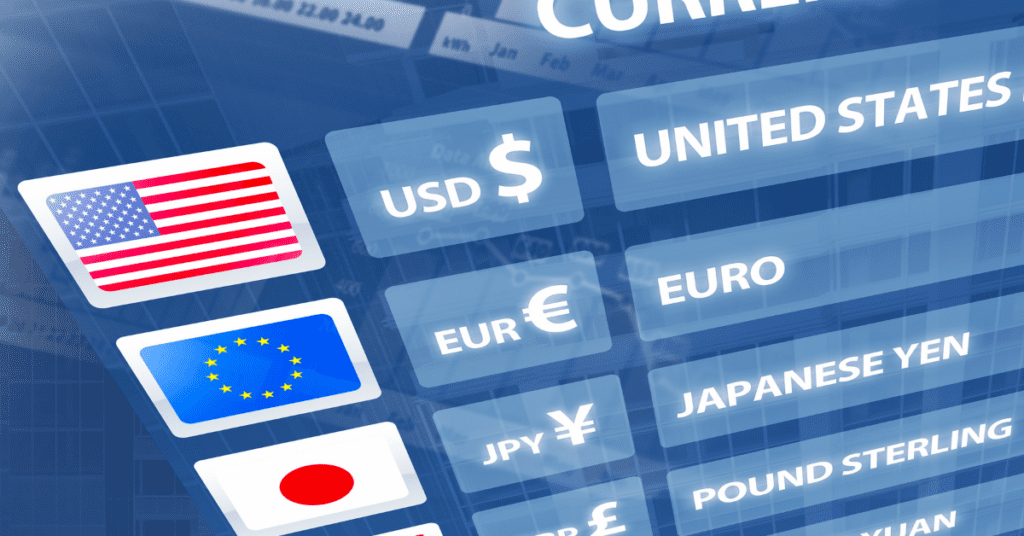The world has gotten more connected through globalization and advances in technology. This has changed the way small business owners operate. And the burning question many businesses are asking is how exchange rate affect business?
In the past, small businesses usually focused on their local area. They made and sold products or services to people nearby, and they got their supplies from local sources. This is usually within the same city or state, and always within the same country.
But with globalization, there are new benefits and challenges for business owners. They now have a bigger market to sell their products to and can choose from suppliers all over the world. However, they also face challenges like understanding different markets and cultures and dealing with foreign languages.
Many small business owners might not fully understand how changes in exchange rates affect their businesses. These exchange rates play a big role in all international transactions. It’s important to know how the foreign exchange markets work. And how they can impact your business.
To read more blogs related to how exchange rate affect business, check out:
Navigating the Foreign Exchange Market: Its Functions, Players, and Importance to Business Owners
10 Factors that Influence Exchange Rates between Currencies

What are exchange rates?
Exchange rates, simply put, are the rates at which one currency can be exchanged for another. These rates fluctuate constantly based on a myriad of factors, including economic data, geopolitical events, and market sentiment.
Imagine you’re running a U.S.-based company importing electronics from Japan. If the exchange rate is 110 Japanese Yen (JPY) to 1 U.S. Dollar (USD) and suddenly shifts to 100 JPY to 1 USD, your purchasing power increases. You can now buy more goods for the same amount of USD because each dollar now costs fewer yen.
There are two primary types of exchange rates:
Floating Exchange Rates: These are determined by market forces, with prices fluctuating continuously based on supply and demand.
Fixed Exchange Rates: Some countries peg their currency to another major currency (like the U.S. dollar or the Euro). This keeps their exchange rate stable against the pegged currency.
For example, if $1 USD equals €0.85 EUR, this exchange rate tells you how much European currency you can get for your U.S. dollars and vice versa.

How Exchange Rate Affect Business
1. Impact on Import Costs
When considering the effects of exchange rates on your business, it’s crucial to understand the multifaceted impact these rates can have. For businesses involved in importing goods, the strength of the domestic currency plays a pivotal role. A stronger domestic currency can lead to reduced import costs, as your currency now has more purchasing power internationally. Conversely, a weaker domestic currency can increase these costs, impacting your profit margins.
For instance, if you’re importing electronics from Japan and the US dollar strengthens against the Japanese yen, your purchasing power increases, enabling you to buy more goods for the same amount of money.
2. Effect on Export Competitiveness
Export competitiveness is another critical area affected by exchange rates. A weaker domestic currency can make your exports more competitive in the global market as your products become cheaper for international buyers. However, if your domestic currency strengthens, your exports might become more expensive and less attractive, potentially reducing demand.
Let’s say a Canadian furniture manufacturer exports to the U.S. If the Canadian dollar weakens against the US dollar, its products will become more competitively priced in the U.S. market.
3. Influence on Profit Margins
The impact of exchange rates extends to the profit margins of businesses, especially those with significant foreign revenue or expenses. Fluctuations in currency values can lead to exchange rate gains or losses when converting foreign revenue back to the domestic currency. For example, a UK company receiving payments in US dollars will see an increase in profits when converting to pounds if the US dollar strengthens against the British pound.
4. Implications for Investments
Investments in foreign countries are also subject to the influence of exchange rates. If a U.S. company has investments in Brazil, a depreciation of the Brazilian Real against the US dollar could decrease the value of these investments when converted back to dollars. Additionally, the repatriation of earnings from foreign subsidiaries can be affected by fluctuating exchange rates, influencing the overall profitability of overseas operations.
5. Challenges in Pricing Strategy
Pricing strategy in international markets is another aspect that can be impacted by exchange rates. Constant fluctuations might necessitate frequent adjustments in pricing to maintain consistent revenue in the home currency. A software company based in India, for instance, might need to adjust its pricing in euros frequently to maintain a steady revenue stream in Indian rupees.
Join our Treasury Community
Treasury Masterminds is a community of professionals working in treasury management or those interested in learning more about various topics related to treasury management, including cash management, foreign exchange management, and payments. To register and connect with Treasury professionals, click [HERE] or fill out the form below to get more information.